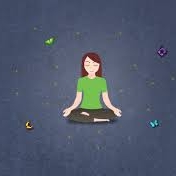GOOD DIGESTIVE HEALTH Post #3
News flash: Hydrochloric Acid is good for you (in the right amounts). Old fashioned American eating habits were in sync with this fact – but our current habits are not.
Picture a couple out for a night on the town in the 1920s:
*They peruse the drink menu and order cocktails prepared with bitters;
*They’ll nibble garnishes of celery and olives and perhaps they’ll eat spinach with their meal;
*They sit down for dinner and the waiter brings glasses of water – the rims adorned with lemon wedges;
Perhaps you do not associate these foods with good digestion or HCl, but in many cultures and over many generations, people who know food and drink, know that HCl is necessary for proper digestion. And, they know that certain foods, such as lemon, apple cider vinegar and bitters, can help stimulate your body’s natural production of HCl.
Now, you might not know if you are low in HCl production, so what might give you a clue?
*You experience heartburn or gas;
*You sometimes see food particles in your stool (sorry, not as much fun as talking about cocktails);
*You are bloated, constipated or have indigestion.
In proper digestion, when food (mixed with saliva) enters your stomach, HCl and other gastric juice is secreted and breaks down proteins into peptides. Peptides are smaller strings of amino acids, vital nutrients which the body can use. If proteins are not broken down, the immune system might perceive those proteins to be foreign invaders and launch an autoimmune response – the result can be inflammation, food sensitivities or disease. The presence of entire proteins instead of broken down amino acids may lead to food allergies, to anaphylaxis shock, to other symptoms typical of an allergy, such as sneezing, breathing difficulties, skin rashes, headaches, nausea, or even, in severe cases, death. And these problems result from just a very small amount of food proteins which don’t belong there.
HCl also is the first line of attack against any pathogenic microorganism or bacteria, parasite, yeast or viruses. When HCl is secreted, it is almost pure acid and necessary to create a balanced pH in the stomach. At that point, the enzyme pepsin digests these microorganisms and they become food for the existing gut microbes. When the pH is out of balance, these organisms can thrive and create havoc – a common problem is Helicobacter Pylori (H. pylori), which can increase the risk of gastric cancer.
Approximately 90% of Americans produce too little HCl. This is due to our culture and our food. When we eat too quickly, we do not stimulate enough HCl production. Also, the standard American diet no longer incorporates HCl stimulators like bitters and vinegar– which used to be staples in our cuisine.
So how do we boost our HCl production to appropriate elevels? Eating apple cider vinegar or bitters helps a lot. Lemon and Manuka honey are also very effective. Celery, spinach, chard and kale all have dietary fibers and stimulate HCl. If these foods do not help your HCl production, there are food supplements that can help, notably digestive enzymes and Betaine HCl – but do not begin here and make sure to consult a provider before diving in. In the case of HCl stimulation, if you can do it naturally and without supplementation, you are less likely to need these aids long term.



